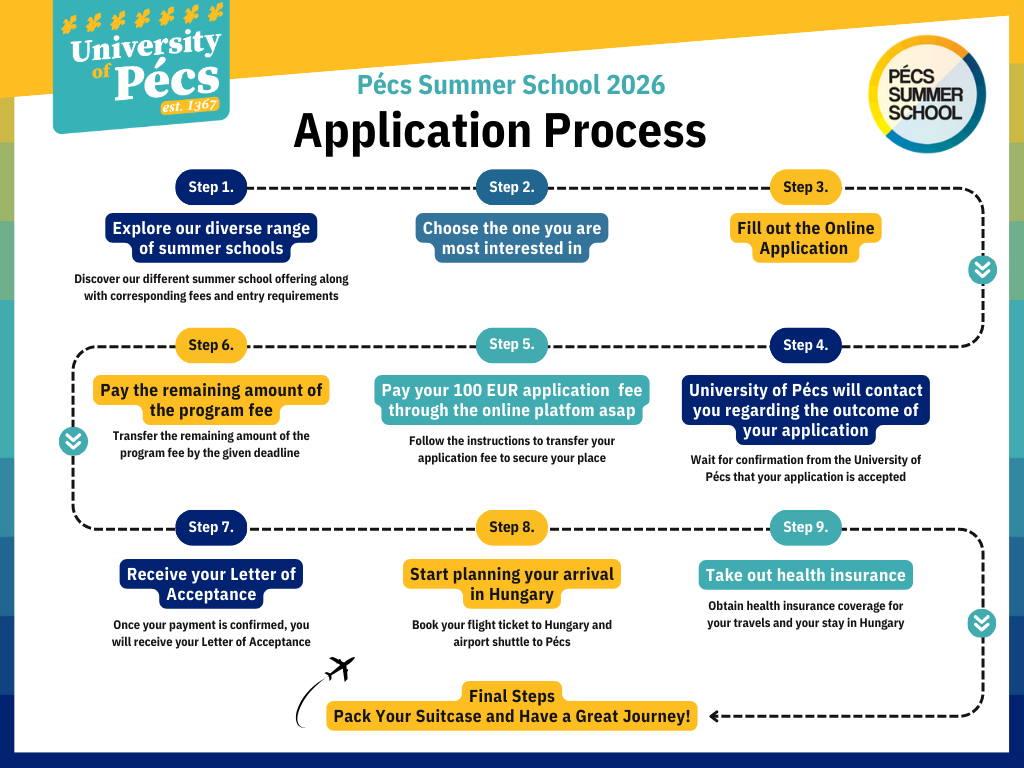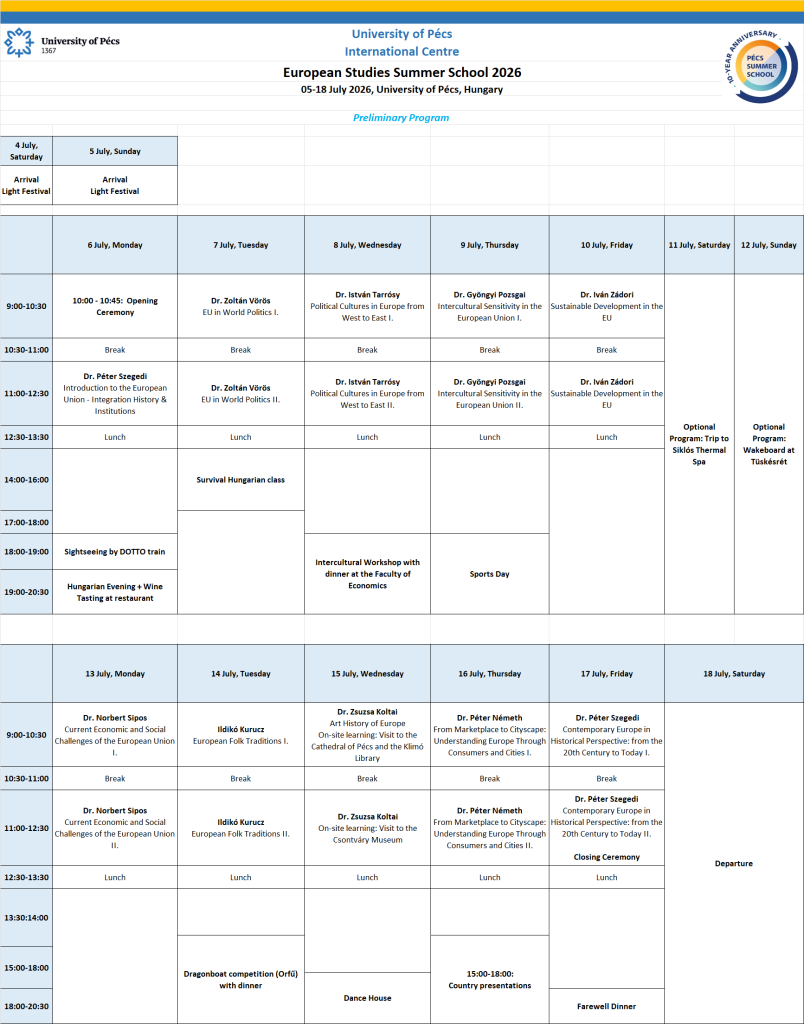Social Sciences
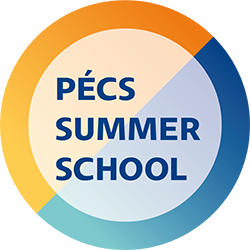
- Study Program
- Schedule
- Social Program
- Accommodation
- Fees and Payment
- How to Apply
- Contact Us

Organizing unit
University of Pécs, International Centre
Course Location
University of Pécs, Hungary
Study Program
Description of the academic program:
The aim of the European Studies Summer School is to help students understand the political, economic, cultural and social accomplishments and challenges of the European Union, as well as to learn about the contributing factors that led to contemporary Europe. The interdisciplinary program provides a comprehensive introduction to the political, economic and social processes as well as the characteristics of the rich cultural heritage and cultural diversity in the European Union.
In addition to the history of European integration and the specifics of the work of the EU institutions, the summer school explores the European Union's role in world politics, focusing on political processes as well as current economic and social situations in the region. Students will also learn about the political, economic, social and cultural impacts of migration on Europe as well as the defining ideas related to sustainable development and the results achieved so far in the EU.
Besides the economic, political and social issues related to the European Union, the educational program focuses on the rich cultural heritage of Europe from historical perspectives to understand European cultural diversity today. Students will study the outstanding achievements of European art and the diversity of surviving folk traditions across Europe. As intercultural communication plays an important role in the culturally diverse European Union today, students will also gain insight into the most important issues of European intercultural communication during immersive and interactive classes.
Learning outcomes:
The summer school will develop students’ comprehensive understanding of the political, economic, cultural and social achievements and challenges of the European Union help students understand the political, economic and social processes of the European Union develop students’ comprehensive understanding of European history and the history of European integration introduce students to the work of EU institutions help students understand the cultural diversity of Europe help students comprehend the cultural heritage and traditions of Europe enable students to independently define different movements in European art history help students understand the relationship between identity, heritage and culture develop knowledge of European cultures and their influence on human behaviour improve students’ cultural awareness and intercultural communication skills.
Teaching methods:
lecture
discussion
group work
The program is comprised of the following courses:
Introduction to the European Union - Integration History & Institutions
EU in World Politics I-II.
Political cultures in Europe from West to East I-II.
Intercultural Sensitivity in the European Union I-II.
Sustainable Development in the EU
Current Economic and Social Challenges of the European Union I.
European folk traditions I-II.
Art History of Europe On-site learning: Visit to the Cathedral of Pécs and the Klimó Library
On-site learning: Visit to the Csontváry Museum
From Marketplace to Cityscape: Understanding Europe Through Consumers and Cities I-II.
Contemporary Europe in Historical Perspective: from the 20th Century to Today I-II.
Credits offered: 6 ECTS
Course requirements:
Active participation in the programs of the summer school. (Absence from class must not exceed 10%.)
Assignment
Language of instruction: English
Language requirements:
Minimum English language requirements: Independent user (B2 according to the Common European Framework of Reference for Languages)
Leader of the academic program: Dr. Péter Szegedi, assistant lecturer
The classes will be taught by highly experienced academics. Students will receive official Transcripts of Records upon completion of the program. The program includes various interesting and enjoyable social programs and excursions.
Looking for more? Combine your chosen Summer School with the Debate Academy and double the knowledge, skills, and fun!
The dormitory is located in the city centre and you will be placed in two-bedded rooms. There are two rooms per housing unit equipped with private bathroom and kitchen. Address: Pécs, Breuer Marcell sétány 2, 7622
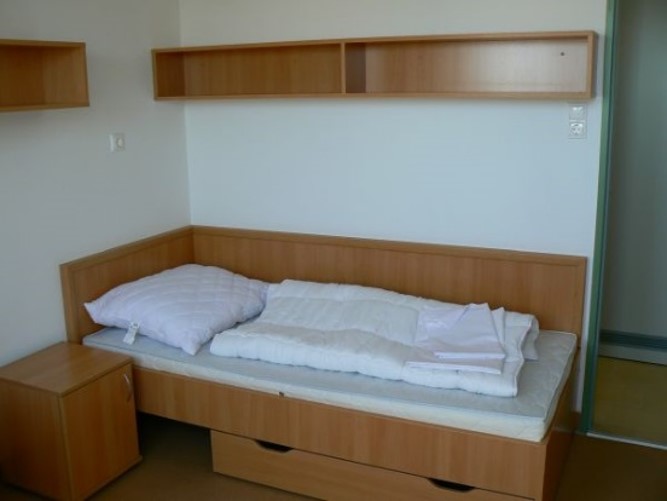
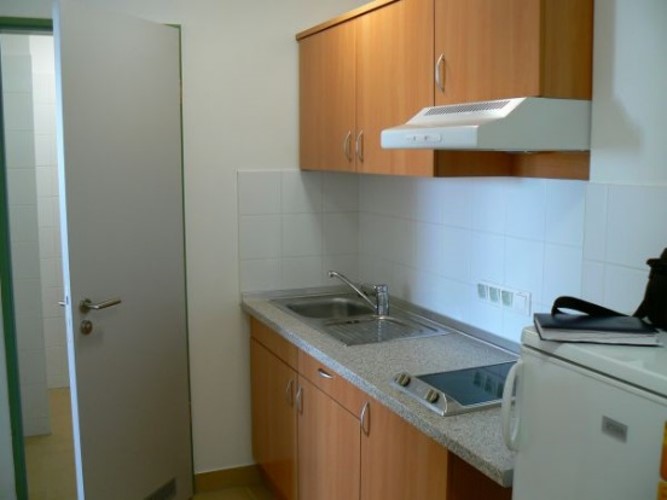
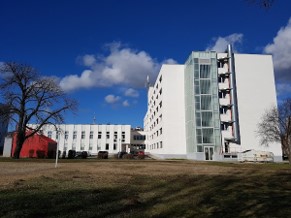
Program fee:
1050 EUR
Application fee: Secure your place by paying a 100 EUR application fee that will be deducted from your overall program fee of 1050 EUR. You can make your payment through our online application platform (apply.pte.hu)
The program fee includes the following:
The program fee covers: cost of instruction, accommodation, lunch on teaching days, four dinners, city tour and social programs.
After the official confirmation of your application, we will send you the details of the online payment.
Refund policy:
As a general rule, if the Participant withdraws their intention to participate after the payment deadline, they are not entitled to reclaim the paid program fee.
If the Participant withdraws their intention to participate in writing due to an extraordinary circumstance beyond their control, and can prove this extraordinary circumstance, the paid program fee can be refunded to the Participant.
Scholarship availability:
1. Bilateral State Scholarship
Scholarships are available in a limited number, and are administered through a different application process. Get more information about eligibility and how to apply for the scholarship: https://tka.hu/international-programmes/4133/information-for-applicants
Call for Application: https://tka.hu/docs/palyazatok/call_incoming_summer_courses_2026.pdf
Application Guide: https://tka.hu/docs/palyazatok/2_application_guide_2026.pdf
Application deadline for the scholarship: 27 February 2026, 5 pm CET
The scholarship covers:
- cost of instruction
- accommodation in a dormitory
- lunch on teaching days
- dinner when evening programs are organized
- social and cultural programs
The scholarship is available for citizens of the following countries: Albania, Argentina, Austria, Belgium, Bulgaria, Canada, Chile, Croatia, Cyprus, Czech Republic, Denmark, Egypt, Estonia, Finland, France, Germany, Greece, Iceland, India, Indonesia, Ireland, Israel, Italy, Japan, Korea, Latvia, Lebanon, Lithuania, Luxembourg, Malaysia, Mexico, the Netherlands, Norway, the Philippines, Poland, Portugal, Romania, Russia, Slovakia, Slovenia, Spain, Sweden, Switzerland, Singapore, Thailand, Turkey, Ukraine, UK, USA
In case of questions, please contact: bilateral@tpf.hu
2. Hungarian Diaspora Scholarship
Do you have Hungarian roots and would like to discover the land of your ancestors? This summer, the Hungarian Diaspora Scholarship offers you the opportunity to explore Hungarian culture, improve your Hungarian language skills, and develop your professional knowledge through our European Studies summer school course.
The scholarship covers:
- tuition fee
- accommodation
- meals
- travel insurance
Eligibility:
Open to individuals of Hungarian descent living outside of Europe
Deadline: February 27, 2026, at 2 PM (CET)
Further information: Read the Call for Application
and the Application Guide
You will need the following documents for a valid application:
Verification of Enrollment*
Proof of English language proficiency
Copy of ID card or passport
*The verification of enrollment document is an official document provided by your home university, stating that you are a currently enrolled student. Typically, you can ask your international coordinator for guidance on obtaining it.
Please ensure that you upload your documents in English.
English language requirements:
| Accepted language test | Minimum result |
| TOEFL (iBT internet - based) | 72 points |
| IELTS (Overall Band Score) | 5.5 |
| Duolingo English Test | 105 points |
| Cambridge ESOL | B2 level |
| TELC | B2 level |
| ECL | B2 level |
| Oxford Online Placement Test | 70 points |
You do not have to submit an official English test result if one of the following criteria applies to you:
You have a major/minor in English, i.e. the English language is the field of study (studies in English linguistics or literature)
You have continued your high school or undergraduate studies in the English language
You are a native English-speaking applicant (a copy of your passport for proof)
You will get an official confirmation that we have received your application within one week after submitting it.
